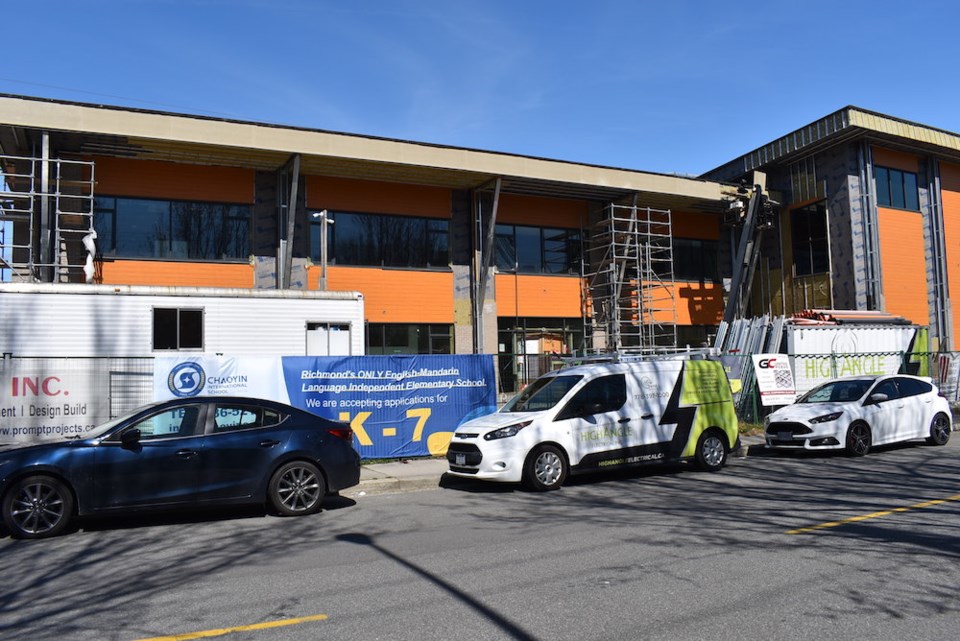A woman has been ordered to return more than $154,000 to a Chinese-owned private school in Richmond after a judge concluded the money was fraudulently obtained.
In a civil lawsuit, Justice Fritz Verhoeven agreed with Chaoyin International School’s owner that there was never a contract for services for Xiao Bo (Polly) Li to be a project manager when the school was being built and that Li had fraudulently obtained more than $154,000 from the school’s owner.
The owner of Chaoyin International School, Yi Shuai (Billy) Zhang, 33, befriended Li, who ran Xenova Property Development Ltd. (Danny Ma was a director of the company.)
Zhang bought a house about five years ago from Li who then told him she was interested in helping him develop his school.
Li helped Zhang look for a suitable property and put him in contact with a real estate agent and an architect.
Li claimed Zhang had hired her to be a project manager and claimed her fee should be 10 per cent of the construction costs.
Zhang, however, believed Li was helping him as a friend and that she wasn’t expecting payment.
In the end, the judge agreed that there wasn’t an agreement for professional services.
Li and Xenova were paid more than $227,000 but Zhang claimed the work Li did was only worth $72,850 and he was suing to have the balance returned.
The main dispute is over $150,000 that Li had claimed was urgently needed by the “government” or the project would be halted.
The judge contends that there was “in fact no fee owing to the government at the time, nor were there any such fees on the horizon.”
At the trial, Li claimed the money was a retainer to pay for future consultants’ fees, so when she and Xenova dispersed the funds for “personal and corporate purposes,” they were allowed to.
The judge concluded the $154,597 was fraudulently obtained and needed to be returned.
While the judge concluded Li’s help was “material,” with references to some professionals, reports and communications, among other things, but, he said, this assistance shouldn’t be “overstated.”
In fact, the judge said in his decision, Li “improperly inserted herself and Xenova in the project,” and made contracts without authority and without telling Zhang.
In a hearing on Sept. 22, the judge awarded Chao Yin “special costs,” for what’s considered “reprehensible conduct” during the trial.
The judge in his decision mentioned a fabricated timesheet and the fact that Li was not a credible witness.
Special costs are a near-complete reimbursement of legal costs. The purpose of special costs is not to compensate the winning party, but to punish the losing party for egregious misconduct during the lawsuit and trial, explained lawyer Paul Kressock.
The lawsuit was drawn out over three and a half years and was adjourned three times.
The amount of the special costs has not yet been determined.
Li didn’t show up for the Sept. 22 hearing, at which time the judge made his decision.
Both Li and Xonova have declared bankruptcy, however, Kressock pointed out, a fraud judgment will likely survive bankruptcy.
Zhang’s father owns several private schools in China and this is the son’s first foray into education.
Zhang is the principal shareholder in Chao Yin, but shares are also held by Qing Dao Chao Yin Industry Co. Ltd. whose major shareholder is Zhang’s father, Qin Zhang.



.jpg;w=120;h=80;mode=crop)